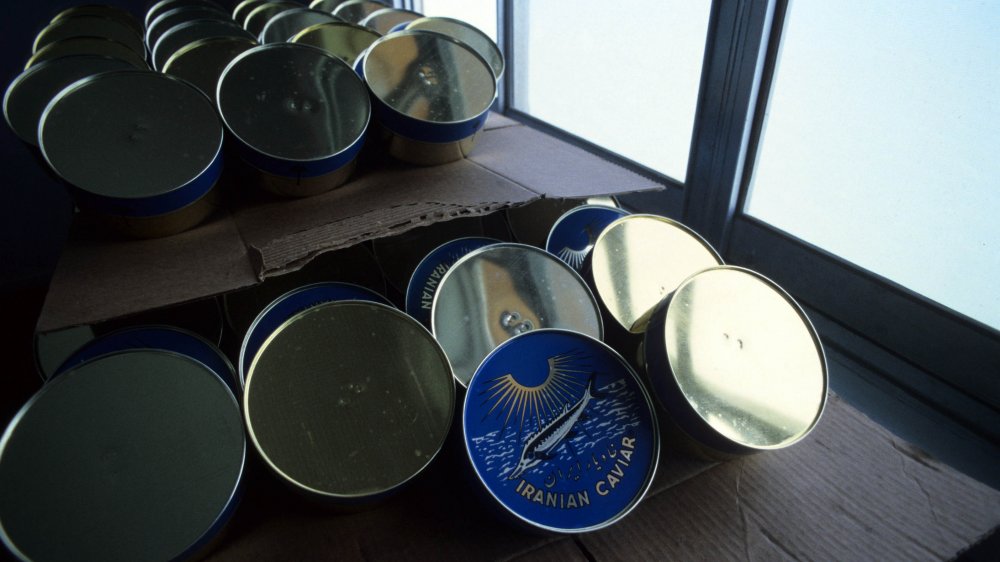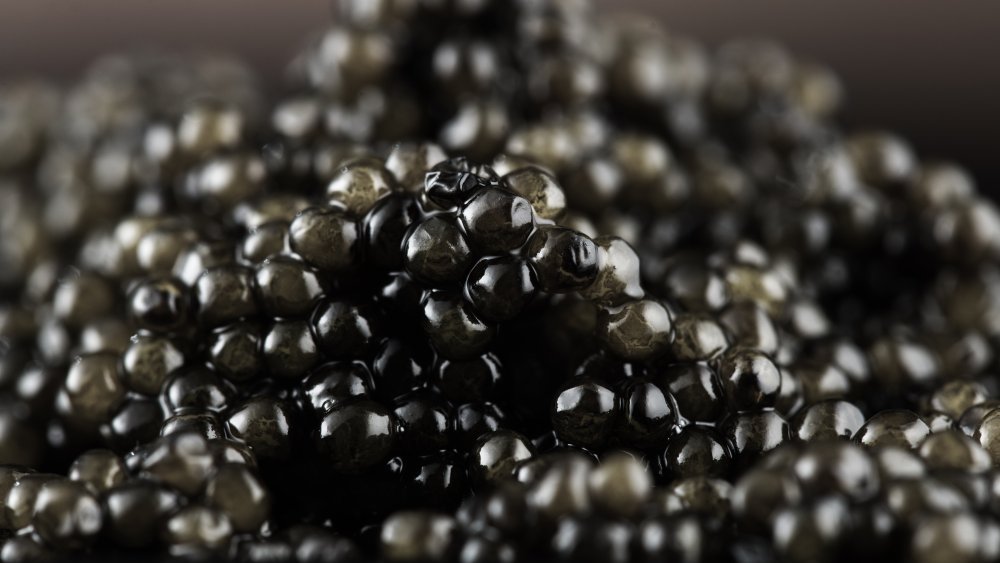You Should Never Eat Beluga Caviar. Here's Why
Caviar is a luxury item enjoyed in many countries around the world and consistently ranks toward the top of the list of most expensive foods by weight (via Mental Floss). The most expensive caviar in the world is of the Iranian Almas variety, from sturgeon aged 100 years — it'll cost you $25,000 for just a few pounds. But on average, a single ounce of caviar can easily top $100 (via Science Daily).
Though caviar has become something of an umbrella term to talk about fish eggs in recent years, true caviar comes from one type of fish and one type of fish only: the sturgeon (via Imperia Caviar). Salmon roe, while delicious, isn't caviar. Flying fish roe, popular at sushi restaurants, also isn't caviar. It's got to be sturgeon.
Sturgeon are one of the oldest fish on the planet, and have existed for more than 200 million years. They can grow to be more than 1000 pounds, and are found in the Caspian and Black Seas. Sturgeon come in 27 different species and one of the most prized types is the Beluga sturgeon.
The banning of Beluga caviar
Unfortunately for caviar lovers, the Beluga sturgeon is critically endangered due to overfishing. Its wild stocks saw a decrease of 90 percent from 1988 to 2008. Because the fish was placed on the endangered species list, importing Beluga caviar became illegal in the United States in 2005.
As a result, farmed caviar operations have sprung up in various countries around the world. A number of different species are farmed but in the United States, there is a single Beluga caviar farm called Sturgeon AquaFarms, in Florida. The farm is now one of the largest beluga caviar sources in the world (via Business Insider). Because the farm's founder, an immigrant from Russia, shipped in Beluga sturgeon in 2003 and 2004, just before the United States federal government banned them, the farm is truly one of a kind. The original fish that were brought in are still alive (as of 2019) and weigh over 350 pounds each.
So, the next time you consider ordering caviar, it's worth thinking about how this very expensive, and very rare delicacy got to your plate.

